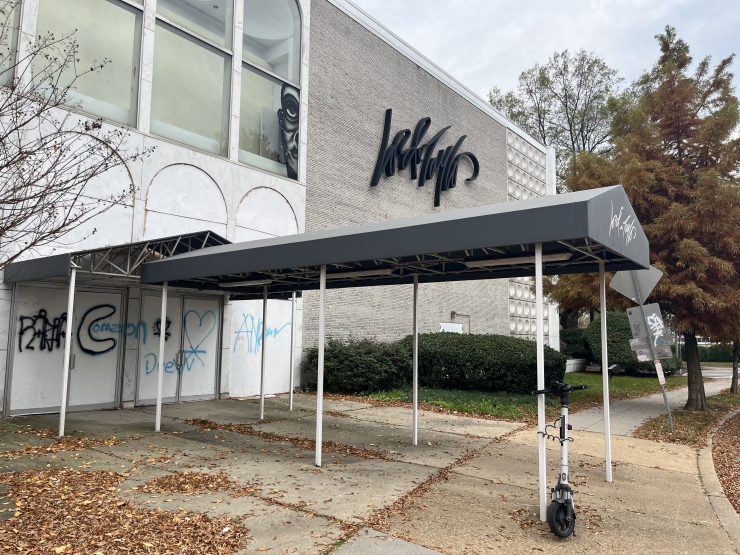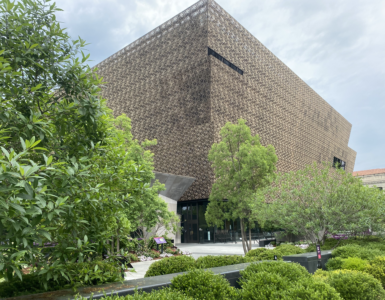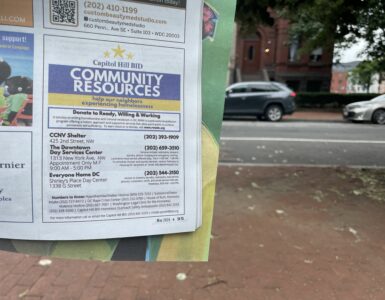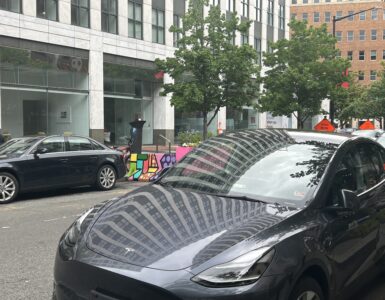For the past few weeks, a DC Office of Planning issued redevelopment framework draft of Wisconsin Avenue has generated talks around what many consider a “ghost” neighborhood.
The Draft of the Wisconsin Avenue Development Framework was released in September for a public comment period that will end on Nov. 15. After that time, The DC Office of Planning will revise and release a final framework.
Among the proposed changes in the draft is a proposal for a new electric bus garage on the site of the former Lord and Taylor department store—a plan that has divided community opinion and sparked debate about the future of this Washington, D.C. neighborhood.

“The garage is likely to be one- story at 44th Street and two stories at 45th Street, to account for the sloping terrain. WMATA is exploring the potential for mixed-use development above the new bus garage, subject to structural engineering considerations and a willing development partner,” DC Office of Planning.
ANC3 Commissioner Matt Cohen offered insights into the broader city planning efforts, framing the bus garage as part of a more extensive strategy.
“DC revisits a comprehensive plan every few years, which aims to update [zoning] based on development and other realities on the ground,” Cohen said.
While there is consensus on the need for revitalization, the proposed bus lot has emerged as a contentious point.
“There’s also a sizable population that says, we have a need for whether it’s housing or a recreation center. Anything is better than a bus depot,” Cohen said.
This sentiment is rooted in a shared vision for a pedestrian-friendly, inclusive community. Residents express a desire for improvements that go beyond transportation.
Among those joining the conversation is the local nonprofit organization, Ward 3 Housing Justice. The Wash spoke with Gail Sonnemann, the nonprofit’s Communications Specialist.
“When Ward 3 Housing Justice became aware that a new Western bus garage was going to be developed, we started organizing, reaching out to neighbors, and were helpful in extending communication more broadly,” Sonnemann said.

Through these efforts, Ward 3 Housing Justice was able to get Neighborgh’s insights on the bus garage project.
“A neighbors group was formed, and it’s primarily those that abut the Lord and Taylor lot. And they have a lot of their concerns are a long list of don’ts,” Sonnemann said.
Residents agree that change is needed but are vocal about the neighborhood’s priorities. An electric bus garage doesn’t seem to be one. However, one of the priorities for Friendship Heights residents is the need for after-school activities. There are about 4200 enrolled students in DCPS and Public Charter Schools in the area, and there is not much to do.
“There’s really not all that much for [kids] to do after school,” Cohen said, highlighting the community’s aspiration for a more vibrant, youth-friendly environment.
While there are many conversations about the bus lot and the redevelopment as a whole, Commissioner Cohen emphasized the framework’s nature, describing it as a blueprint of ideas.
“It’s more conceptual and a document of ideas that will encourage change. So, some things may come to fruition. My guess is the majority won’t because change takes time and it’s hard,” Cohen said about the framework.
This suggests that while the bus lot may be imminent, its final form could evolve with sustained public discourse.
While conversations around the redevelopment framework continue, the question of change remains on the table. Friendship Heights has gone through a lot of change over the last ten years. Commissioner Cohen explained that the neighborhood has lost a lot of its retail structures to the death of brick-and-mortar, followed by the COVID-19 pandemic.
“If you go to Friendship Heights now, it’s a ghost town. Every other store is boarded up, and there aren’t many people coming to it as sort of a center of shopping and entertainment and things to do,” Cohen said.















Add comment